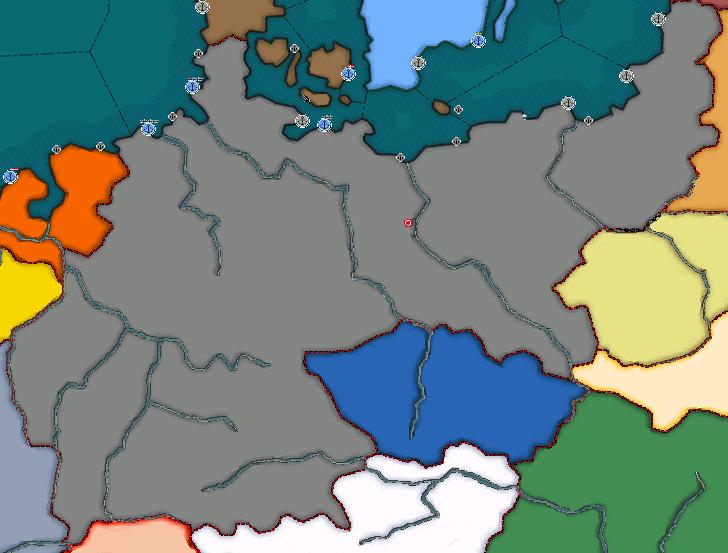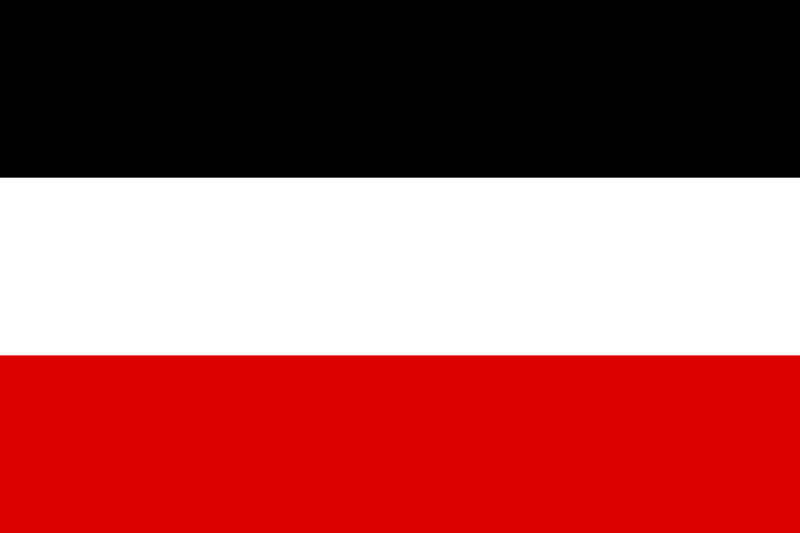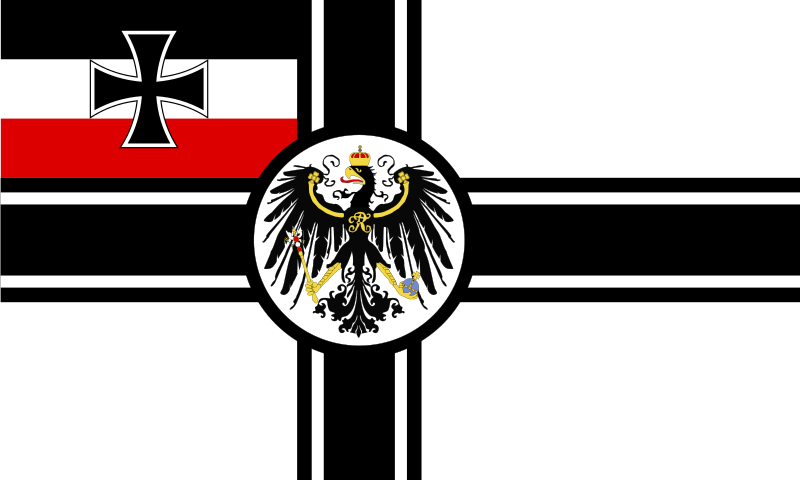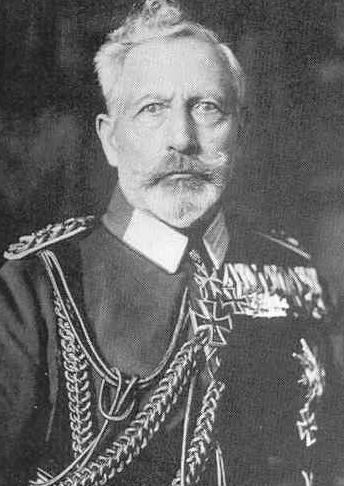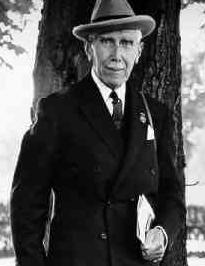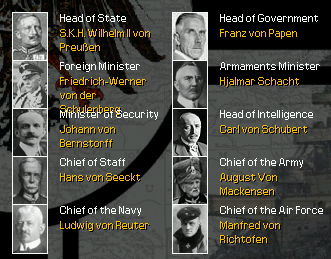Germany
From Kaiserreich
Germany, or officially German Empire (German: Deutsches Kaiserreich)is a country in West-Central Europe. It is bordered to the north by the North Sea, Denmark, and the Baltic Sea; to the east by Poland and Lithuania; to the south by Austria-Hungary and Switzerland; and to the west by Commune of France, Flanders-Wallonia, and the Netherlands.
German Empire is a semi-constitutional monarchy composed by twenty-eight states, ruled by the king of Prussia: the Empire was proclaimed on January, 18 1871 in the Hall of Mirrors of Palace of Versailles in the aftermath of the Franco-Prussian War of 1871. It gained a huge overseas empire after the Weltkrieg, and stays as the main winner of this one. Now head of the main alliance in Europe, the Mitteleuropa, consisting of authoritarian constitutional monarchies ruled by German monarchs, the German Empire is facing the risks of economic crisis, the rivalry of other empires and syndicalist wills of spreading and revenge...
Contents |
General information
Official name: Deutsches Kaiserreich (German Empire)
Motto: Gott mit uns (God with us)
Anthem: Heil dir im Siegerkranz
Capital: Berlin
Official language: German
Type of government: Constitutional monarchy
Date of unification of German Empire: 18 January 1871
Area (without colonial empire): More than 543.000 km²
Population (without colonial empire): Around 73 million
Currency: Papiermark
History
Unification
Under the pressure of Prussian Chancellor Otto von Bismarck (better known as the "Iron Chancellor")and in the turmoil of the nationalist awakening in Europe, Germany finally ended with almost one millenium of division between rival monarchies, skilfully kept by foreign powers: after having defeated Denmark, Austria-Hungary and France, the German Empire was proclaimed in the palace of Louis XIV, Versailles, on January, 18 1871: uniting all the scattered German-speaking areas (except Austria) under the rule of Germany's first Kaiser, Wilhelm I of Prussia, the new country secured his position as a great nation, forging several alliances in order to diplomatically isolating defeated France, eager to recover Alsace-Lorraine (Elsass-Löthringen); beginning to establish colonies outside Europe in 1884, Germany mourned her first Kaiser on March, 9 1888; his son, Friedrich III, died of incurable throat cancer only 99 days later. Wilhelm II subsequently acceeded to the throne. Considering Bismarck's foreign policy as too soft, the Kaiser dismissed the Iron Chancellor in 1890, replacing him by more malleable Chancellors; Bismarck died eight years later.
"The Place under the Sun"
Wilhelm II followed imperialist policies which were mostly fashionable in Europe of these times, obssessed with a dream of "Place under the Sun" for Germany: claiming much more colonial possessions, and beginning a naval rivalry with Britain on the advices of admiral Alfred von Tirpitz. Worse: the alliances that Germany concluded before were not renewed, and an isolated Germany (except for an alliance with Austria-Hungary, and a fragile one with Italy) was facing the Entente Cordiale between Britain and France, which secured ties with Russia. Wilhelm II was about to create a new war in 1911 with the Agadir Crisis, claiming Morocco for Germany.
Weltkrieg
Then Archduke Franz Ferdinand was assassinated in Sarajevo in June 28, 1914 and Austria-Hungary seeked Serbia to cease her destabilisation, Germany backed Austria-Hungary; soon, German Empire found herself at war against France, Britain and Russia. Quickly invading Belgium and Luxembourg, German advance was stopped on the Marne in 1914, and also in Poland by the weak Russian forces. The war soon became nothing less than indecisive and bloody offensives, the worst of them being Verdun (1916). In 1917, Russia collapsed into Revolution and thousands of soldiers were dismissed from the Eastern Front to the Western one. In March 1919, after three and a half years of attritional warfare, the German offensive on the Western Front finally succeeded in overrunning the Entente defences. French morale collapsed along with her army against the onslaught as the Reichswehr exploited the breakthrough and marched towards Paris and the Loire valley. As the army collapsed the exhausted French surrendered and allowed the German army to occupy their proud nation. Following this stunning victory, German troops were rapidly sent to the existing Italian and Turkish fronts and forced entry into the lightly defended parts of northwestern Italy. With the arrival of these veteran troops, the Central Powers defeated both the British and Italian armies, restoring Ottoman power in the Middle East and occupying Northern Italy. The war with Britain and the remaining Entente forces overseas dragged on inconclusively until 1921 when a “Peace with Honour” was secured, ending the Weltkrieg. Even if white peace has been concluded with Japan, Portugal and Britain, France, Belgium, Russia and Italy almost ceased to exist and give their colonial holdings to a victorious Germany.
Road to Mitteleuropa
Not everything was well within Germany though - 7 years of war had pushed her population to the brink of starvation, German industry stagnated following the wars end as demand was slashed and the costs to the government mounted as they were forced to subsidise conversion back to domestic production, struggled to feed its population and fought the ever-present danger of inflation that had arisen from printing money to fund the war effort, which continued exist in order to secure the terrible situation in Russia, still in a civil war. In 1924, Grand Admiral von Tirpitz became Reichkanzler and his policies started a golden age of German Weltpolitik, bringing the economy under control through regulating the markets, subsidising food imports with money gained from reparations and the sale of technology to Germany’s allies and client-states. Tirpitz’s hugely successful regime culminated in the well-executed occupation of British colonial possessions following the outbreak of the British Revolution and the establishment of Freistaat Mittelafrika, created along with Allgemeine Ostasiatische Gesellschaft, in order to reduce the full powers of colonial governors. His only failures were his unability to stop the spreading of syndicalism in Europe, to secure the worsening economic situation, and an intervention in China, made to stop the increasing anarchy there, which only increased worse the situation there. However, since the Grand Admiral’s death in 1930 things have been going downhill for Germany. A general slowing of the world economy is decreasing industrial output and national income as other nations recover their manufacturing power, and growing nationalism in Germany’s eastern clients is starting to cause tensions as both populations and governments begin to drift away from the Reich. The Kaiser is getting old, so as the welfare state put in place by Bismarck himself, and if Germany had never been so powerful, she's maybe on the eve of her worst crisis ever.
Politics
Germany is a federal semi-constitutional monarchy ruled by the German Kaiser (who is also King of Prussia). Although Germany has many political parties, the state policies are rather authoritarian. The Constitution of the Second German Reich has stood in place for 60 years. The Chancellor and Government are appointed by the Kaiser, but legislation needs to be approved by the Reichstag, a chamber elected proportionally by universal male suffrage, and the Bundesrat, consisting of representatives from each of the states. While the Reichstag is far from a rubber-stamp institution, and has become increasingly vocal and assertive over the past thirty years, it is not yet strong enough that it can actually bring down a Government. The relative weakness of the Reichstag has meant that a wide range of voluntarist pressure groups have sprung up, attempting to push forward a range of economic, political and sectional causes. In addition, the various states of the Reich have considerable autonomy and influence over local matters, including education, law enforcement and arts patronage. While many of the smaller states have extremely liberal constitutions, the unequal Estate-based electoral system for the Prussian Landtag remains a bone of contention.
Kaiser and King of Prussia: His Imperial and Royal Majesty Wilhelm II von Hohenzollern (born 27 January 1859)
Reichkanzler: Franz von Papen (Standischer Verbund, born 29 October 1879)
State Secretary for Foreign Affairs: count Friedrich Werner von der Schulenburg (Standischer Verbund, born 20 November 1875)
State Secretary for Finance: Doctor Hjalmar Schacht (IHK-Mitteleuropa, born 22 January 1877)
State Secretary for the Interior: Count Johann Heinrich von Bernstorff (Standischer Verbund, born 14 November 1862)
Head of Abwehr: Carl von Schubert
Chief of the German General Staff: Field Marshal Hans von Seeckt (Grosser Generalstab, born 22 April 1866)
Commander of Reichsheer: Field Marshal August von Mackensen (Grosser Generalstab, born 6 December 1849)
Commander of Kaiserliche Marine: Admiral Ludwig von Reuter (Grosser Generalstab, born 9 February 1869)
Commander of Luftstreitkräfte: Baron Manfred von Richthofen (Standischer Verbund, born 2 May 1892)
Constituent states of the Reich:
-Kingdoms of Prussia, Bavaria, Saxony and Wurtemberg
-Grand duchies of Luxemburg, Baden, Hesse, Mecklenburg-Schwerin, Mecklenburg-Strelitz, Oldenburg and Saxe-Weimar-Eisenach
-Duchies of Anhalt, Brunswick, Saxe-Altenburg (Sachsen-Altenburg), Saxe-Coburg and Gotha and Saxe-Meiningen
-Principalities of Lippe, Reuss, junior line, Reuss, senior line, Schaumburg-Lippe, Schwarzburg-Rudolstadt, Schwarzburg-Sondershausen andc Waldeck-Pyrmont
-Free Hanseatic cities of Bremen, Hamburg and Lübeck
-Reichslands of Elsaß-Lothringen and Lüttich
The Vereingtes Baltischer Herzogtum (United Baltic Grand-Duchy) is officially independant, but is under German colonization: at the end of the proccess, it will join the German Empire as an integrant part of it.
German political parties
See: German parties
Despite his authoritarian nature, the German political system is favourable to be multiparty; each one is representing some part of the Kaiserreich, and in these troubled times, each one can gain much power. The current Reichstag is ruled by a Ständischer Verbund majority, confident to the Kaiser's decision.
Sozialdemokratische Partei Deutschlands (social-democrat with several marxist militants), presided by Karl Kautsky and Arthur Crispien
Fortschrittliche Volkspartei (progressist, liberal, democrat), presided by Walther von Rathenau and Wilhelm Külz
Zentrumspartei (Catholic), presided by Ludwig Kaas and Heinrich Brüning
Nationalliberale Partei (democrat but conservative and nationalist), presided by Paul von Lettow-Vorbeck and Johann Schwerin von Krosigk
Grossdeutsche Volkspartei (Pan-Germanists, national-populist ideology), presided by Ernst Röhm and Gregor Strasser
IHK-Mitteleuropa (defending the interests of capitalist apparatus in Mitteleuropa), presided by Gustav Krupp and Hjalmar Schacht
Ständischer Verbund (representing the Prussian Junkers, aristocratic, agrarian), presided by Franz von Papen and Carl Friedrich Goerdeler
Grosser Generalstab (representing the militarian elite), presided by Hans von Seeckt and August von Mackensen
Military
The Reichsheer is a profesionnal army with the most modern armament and the best training: the well-known Prussian military quality still exists, represented by the excellent German generals, all belonging to the Junker aristocratic elite. Most of the ground forces are implemented in mainland Germany, such as the Kaiserliche Marine and the Luftstreitkräfte, forming part of a defence positive created in the late 20's by Grand Admiral and Reichkanzler von Tirpitz: Flanders-Wallonia and Siegfried Line in Elsass-Lothringen are defending the country against Commune of France. The Eastern European allies are forming a range of buffer states to avoid the consequences of unstability in Russia. The security in the colonies, except for some garrisons in Morocco, Singapore, the Pacific islands and Western Africa, are defended by private militias raised by the powerful Staathalters of Mittelafrika and Allgemeine Ostasiatische Gesellschaft.
In case of war, Germany could have the support of her allies of Mitteleuropa, linked to her through royal bloodlines, and also Austria-Hungary, Bulgaria and Ottoman Empire.
The Generalfeldmarschalls are also a subject of pride for the German army. The currently living ones are August von Mackensen, hero of the Weltkrieg; Hans von Seeckt, current Chief of Staff and hero of the German intervention in China; Erich Ludendorff, architect of 1919 Great Summer Offensive; Wilhelm Groener, former governor of Allgemeine Ostasiatische Gesellschaft; Paul von Lettow-Vorbeck, hero of the operations in Africa during the Weltkrieg; Manfred von Richthofen, the Red Baron, still very popular; Fedor von Bock, personal friend of the Kronprinz; Werner von Blomberg, who helped to the conception of Mitteleuropa alliance. And of course the three German kings, save the King of Prussia: Rupprecht of Bavaria, Friedrich August IV of Saxony and Albrecht of Wurtemberg.
Some foreign officials of friendly countries are also officially German Field Marshals, such as all the monarchs of Mitteleuropa, Ferdinand I of Bulgaria, Haile Selassie of Abyssinia, Zaifeng of China, Otto I of Austria-Hungary, Mehmed Talaat Pasha of Ottoman Empire, Alfonso XIII of Spain and Archduke Friedrich, Duke of Teschen. Exiled King of England George V and British prince Arthur, Duke of Connaught are still Generalfeldmarschalls, but due to their countries position during the Weltkrieg, it's actually null and void.
Foreign relations
Alliance (also known as Mitteleuropa) with Flanders-Wallonia, Finland, Vereingtes Baltischer Herzogtum, Lithuania, Ukraine and Weissruthenien
Colonialist relationship with Abyssinia, Qing Empire and Poland
Friendly relations with Austria-Hungary, Bulgaria, Ottoman Empire and Spain
Declared hostility against Commune of France, Republic of the Sicilies, Union of Britain, Canada and National France
Colonial empire
German colonial possessions in Europe: Crete, Malta
German colonial possessions in Africa: Freistaat Mittelafrika, Suez Canal, German Somaliland, Madagascar, Mauritius Island, Gambia, Sierra Leone, Morocco
German colonial possessions in Asia: Allgemeine Ostasiatische Gesellschaft, German Indochina, Qingdao, Singapore, German Sarawak, German Yemen, Ceylon, Hainan island
German colonial possessions in Oceania: German New Guinea, Solomon islands, Northern Mariana islands (excluding Guam)
Culture
Role of Women in Germany
While economic and social forces have ensured that women fill many jobs in the major cities, particularly in service industries and clerical work, the conservative Reich establishment has thusfar prevented them from having a vote in Reichstag elections (although some of the more progressive states, such as Wurttemburg and Baden, have permitted female voting in Regional Assemblies). However, the long presence of female politicians in public life, not least of which is Rosa Luxemburg, grandmother of German Socialism, has made Frauenwahlrecht a hot political issue.
Literature
Germany´s top author at the moment is Erich Paul Remark, whose anti-war book 'Durchbruch' (1929), followed by 'Der Weg vorwärts' (1931) has become immensily popular, despite opposition from the Großer Generalstab. He is currently working on his third book, set after the final armistice with Britain. Some rumors are speaking over an alternate history novel, "Führerreich", telling the story of a Germany which lose the Weltkrieg.
Music
While officially, Germany is endorsing classical music - especially Wagner, Bach, Brahms, Mozart, Händel and all German composers, it isn´t quite as popular as it once was. Even the Kaiser has begun worshipping Scott Joplin.
